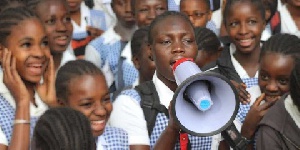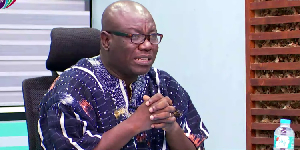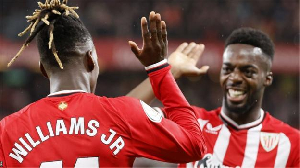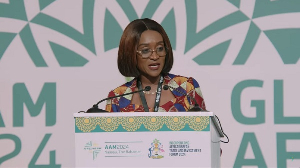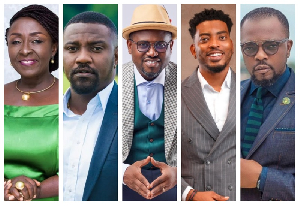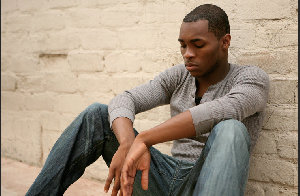The feeling of having to give birth to a girl for many families is great and refreshing. To many people it is a unique blessing from God and particularly for parents it is like an ‘insurance package’ against old age.
The worry, however, is how these girls can surmount the numerous negative socio-cultural practices militating against their growth and development to realise their fullest potential and become the blessing that they ought to be for their families and society at large.
Negative cultural practices like child and forced marriages, elopement, abduction, teenage pregnancies, male child preference, sex tourism, trafficking, violence against women and commercial sexual exploitation among many others are still pervasive in society.
Effects
The consequences on the progress of girls are daunting. Child marriage results in the termination of victim’s education which is contributing significantly to the high illiteracy rate in Ghana.
Victims equally suffer verbal/physical abuse leading to low self-esteem, while teenage pregnancies forced victims to become child mothers, which are exposed to health implications such as obstetric fistula among others.
Victims often have no career as a result of lack of skills. Their marriages are often characterised by violence and rape is a common phenomenon as a result of excessive power of one spouse over the other.
Their lack of employable skills inflict in them unimaginable levels of poverty that affects every facet of their lives including; their nutrition status.
Available Statistics
According to the Demographic and Health Survey (DHS 2014), in Ghana, an average of one out of five girls is married before their 18th birthday. This amounts to approximately 260,000 affected girls in the country.
However, for girls living in Upper West, Upper East and Northern Regions this number increases to one out of three girls.
Specifically, incidence of child marriage in these areas by age 18 stands at 36.1 percent for Upper East Region, 37.3 percent for Upper West Region and 39.6 percent for the Northern Region according to the DHS 2014.
The 2010 Population and Housing Census indicated that for persons aged 12 to 14 years, 11.18 percent of them were married while 17 percent of those within the age bracket of 15 to 19 years were also married.
The statistics also indicated that child marriage amounted to almost one tenth (7.4 percent) of the married population in the Upper West Region.
Furthermore, a total of 4,282 out of 8,220 married people were girls representing 52 percent.
The law
Under the Children’s Act 1998 (Act 560), child marriage is criminal. However, most people especially those in rural communities are not aware of the provision and even the few that are aware do little or nothing about it.
Underpowered girls and young women are unable to participate in decision making, thereby contributing very little to the development of their families, communities and society in general.
These challenges confronting girls have serious repercussions on the development of society as it deprived women and girls their basic rights and opportunities.
This has therefore raised concerns about the kind of protection system society has for girls and young women.
Globally, issues affecting the girl child and young women are beginning to receive attention, evident in the Sustainable Development Goal Five (SDG 5).
This goal seeks to bring an end to all forms of discrimination and violence against all women and girls everywhere as well as eliminate all harmful practices, such as child, early and forced marriage and female genital mutilation.
The government of Ghana, development partners and other stakeholders including Non- Governmental Organisations (NGOs) had since been putting in efforts to protect girls and young women against such menace and contribute to the achievement of the SDG 5.
The ‘Champions of Change’ Initiative
The issues of child marriage and girl’s economic empowerment according to Mr. Moses Dramani Luri, Executive Director of Social Initiative and Development Programme (SILDEP) are centred on culture and religion.
“To tackle this, you need people who do not just have power and influence but also interested in gender based violence and girls and young women economic empowerment issues”, he said.
For this reason, key stakeholders including; religious leaders, role models and Chiefs at the district, regional and national levels as well as other opinion leaders have been identified and brought together to form the ‘Champions of Change’ – an initiative under the Girls Advocacy Alliance (GAA) project.
He said the chiefs and religious leaders are expected to take advantage of various platforms available to him to advocate and make public statements on gender based violence, commercial sexual exploitation, economic empowerment of girls and their access to Technical and Vocational Education and Training (TVET).
Naa Robert Bob Logah, the Chief of Jang in the Nadowli-Kaleo District of the Upper West and one of the ‘Change Agents’ noted that following the trainings, he had started promoting women economic empowerment through livestock rearing in his community.
He believes women have the potential to catapult Ghana into the next level of development, adding that all that was required was for them “to wake the sleeping lions in them” through the removal of all barriers affecting their progress.
Kuoro Bamula Basinjia Chieminah, the Chief of Kandia in the Sissala West District of the Upper West Region and one of the ‘Champions of Change’ noted that as a change agent, one of the things he together with his elders did was to put some by-laws to protect basic school girls in the community.
This according to him had contributed significantly to reducing the incidence of teenage pregnancies among basic school girls in the community.
Another major step employed by Kuoro Chieminah is individual and group counselling for school girls in the community against negative social vices, while encouraging them to focus on their education in order to become responsible citizens in the future.
For him, the training given to them as ‘Champions of change’ was very helpful as it re-awakened them as stakeholders to their core responsibilities as far as the protection of the girl child was concern.
Madam Susana Wibonto, a Science Teacher and Patron of the Sexual and Reproductive Health Club at the Hilla Limann Senior High School in Gwollu in the Sissala West District said she was elated to have been selected to be part of the ‘Champions of Change’ initiative as a role model.
She said at the school club level, she often educate the girls on issues concerning the reproductive cycle, girl child education and sexual abuse among others, adding that since she became a member of the ‘Champions of Change’, she had really been empowered through the trainings she participated in.
“The community I come from, at times you hear of such negative cultural practices affecting the girl child but you cannot say anything because they do not want it reported”, she said.
“But now, through this programme, I have been empowered to voice out anytime I hear of such cases”, she said and stressed that she was going back to the community to do exactly that to help protect the girls in her community and beyond.
The Girls Advocacy Alliance (GAA)
In this regard, three organisations in the Netherlands namely; Plan International, Defence for Children and Terre des Hommes initiated the Girls Advocacy Alliance (GAA) project with funding from the Dutch Ministry of Foreign Affairs.
It seeks to better the lives of women and girls and ensure the provision of equal opportunities for them in 10 Asian and African countries.
In Ghana, the project is being implemented in the Greater Accra, Ashanti, Northern, Upper West and Eastern Regions by Plan International Ghana, Defence for Children International Ghana and Ghana NGO Coalition on the Rights of the Child. SILDEP is the local implementation partner in the Upper West Region.
The long-term goal of GAA is to ensure that girls and young women are free from all forms of gender-based violence and are economically empowered.
To achieve this, implementers of the project applied a broad spectrum of lobby and advocacy interventions to; increase public support for the campaign against girl child abuse; and improve policies and practices of corporate and private sector actors to favour females.
It also seeks implementation of effective legislation and public policies that favour females; and improve practices of government actors in support of the prevention and elimination of gender-based violence and economic exclusion of girls and women.
GAA also focuses on the strengthening of capacities of civil society organisations and networks to influence government and private sector actors to eliminate gender-based violence and economic exclusion.
The objective is to end child marriage, reduce sexual violence and abuse, reduce commercial sexual exploitation of children and ensure girls and young women have increased access to Technical and Vocational Training and Education (TVET) and decent work opportunities so they do not fall prey to abuse.
Opinions of Wednesday, 18 July 2018
Columnist: ghananewsagency.org





